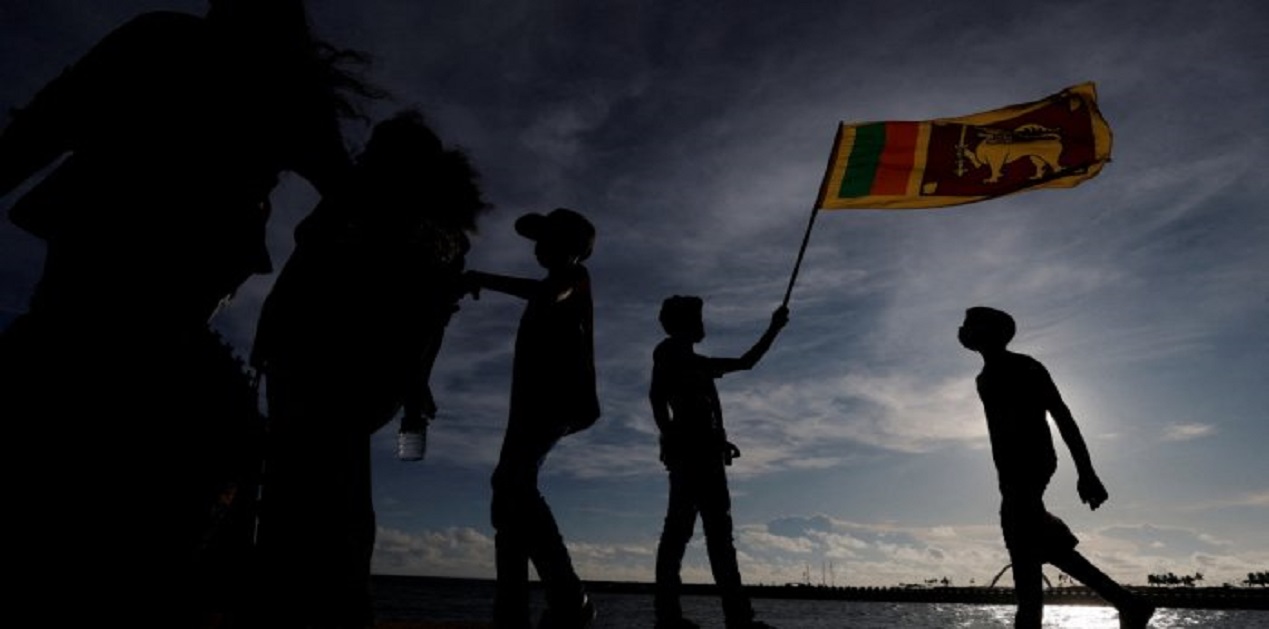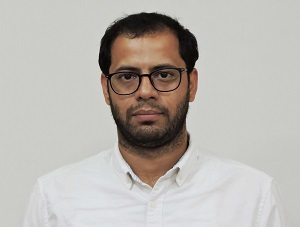The Local Government (LG) elections in Sri Lanka have been postponed twice in the last one year. The election to choose new administrations for 340 local councils[1] that serve four-year terms was last held in 2018; therefore, the same was supposed to be held in 2022. But it was delayed due to the pandemic in 2022 and thereafter it has now been postponed again due to the ongoing economic crisis.[2] The postponement of elections came as a big surprise to political parties, particularly the opposition, which was looking for ways to win these elections in the midst of an economic crisis. In January, the Election Commission (EC)scheduled local council elections for the 9th of March, but on February 20 informed the Supreme Court that it would be unable to conduct the elections due to lack of funds for printing the ballot papers.[3] However, after the directions from the Supreme Court, the Election Commission of Sri Lanka announced April 25 as the latest and most suitable date for elections[4] but it has not been confirmed as yet. Under such circumstances, the prospects of conducting Sri Lanka’s local government elections seem quite uncertain.
Strikes in Colombo
After the decision was made to delay the local elections by the ruling dispensation, opposition parties have been holding protests in the capital, Colombo. Ordinary citizens under the banner of opposition parties and alliances in Sri Lanka, such as Samagi Jana Balawegaya (SJB), Janatha Vimukthi Peramuna (JVP), National People’s Power (NNP) led by A K Dissanayaka, have been staging protests against inflation, tax hikes and the decision to delay local elections. In counter action by the law enforcement agencies on February 26, dozens of people got injured, one succumbed to injuries, when police used tear gas and water cannons to disperse the protesters. Meanwhile, trade unions, civil society organisations and professional associations have also threatened to shut the country down.[5] Since economic crisis, the opposition parties have been pushing President Wickremesinghe-led government to conduct the election, but the government is not ready yet. Such a situation resembles the conditions that emerged in Colombo, after the economic crisis in 2022.[6]
In order to restore political and economic stability, the government has deployed the police force and banned anti-tax strikes under the pretext of maintenance of essential services.[7] Meanwhile, the mounting pressure from civil society groups has created a challenging situation for Wickremesinghe and the United National Party (UNP).[8] The humiliating defeat of Wickremesinghe and the UNP in the last (parliamentary) election in 2020 has left minimal scope for UNP to manoeuvre support in the near future. Nevertheless, Wickremesinghe told the UNP to prepare for the upcoming local elections, which will not happen without the proper (re)allocation of funds. However, the matter was taken to the Supreme Court[9] which can rule on elections date, but cannot save the economy, Wickremesinghe said in the parliament.[10] He further stated that his priority is not politics but instead building the economy and it should be a concern for everyone at the moment.[11]
Political Factions and Alliances
Current dispensation and the opposition parties are engaging in a debate over elections vis-a-vis economic crisis. The opposition parties, particularly the Samagi Jana Balavegaya (SJB) pointed out that president Wickremesinghe has relied on the support of Sri Lanka Podujana Peramuna (SLPP) to govern and sustain the regime. In this situation, safeguarding the SLPP and leaders like the Rajapaksa brothers has become a compulsion for Wickremesinghe.[12] In fact, he has aligned with SLPP after a factional divide with Sajith Premadasa over the leadership within UNP. When Premadasa did not get support from the UNP’s working committee in 2020, he formed his own political party SJB and emerged as the single largest opposition party in the parliament.[13] Despite securing the second position in Local Council Elections of 2018, UNP managed only one seat out of 225 members of parliament in 2020. In this context, the March 9 vote was meant to be a key test of support for President Ranil Wickremesinghe and his party, especially when the ruling alliance, Sri Lankan People’s Freedom Alliance (SLPFA) led by SLPP has developed fissures within.
All the factors including corruption, nepotism, fiscal deficit and sovereign debt of the country have contributed to aggravate the situation.[14] A journalist and researcher from Colombo, writes that no nation has ever postponed elections because there isn't enough money in the treasury. According to Manjula Gajanayake, Executive Director of the Institute of Democratic Reforms and Electoral Studies (IRES) President Ranil Wickremesinghe had made overt attempts to sway the independent Election Commission and disseminated rumours about tensions between commissioners.[15] The President has also stated that elections won't be held until the Sri Lankan economy is stabilised, therefore, it is unlikely that the government will provide funding unless large-scale demonstrations take place and force the authorities to conduct local elections.[16]
Election Commission is also awaiting the allotment of funds from the government. In this context, the role of Ministry of Finance, Economic Stabilization and National Policies seem significant for the governance and politics in Sri Lanka. After examining how the economic crisis has affected the political situation and governance, it is quite evident that elections are unlikely to be held soon. However, the Supreme Court has issued an interim order restraining authorities from withholding funds for the conduct of local government elections.[17] In this light, several questions have been raised, for instance, what are the government’s plans to deal with the economic and political crisis? Why are they running away and not ready to conduct local elections, even after a year of postponement? How they will restore an accountable political system and order without elections, which is generally considered a fundamental practice in democracy?
Financing Democracy
Elections are the manifestations of a democratic process. In line with the judicial and administrative systems, a democratic process of governance holds the political system responsible. But due to the political and economic problems in the country, it has become difficult for the government to hold on every principle of democracy. Together with implementing a plan that has been authorised by the IMF, the Wickremesinghe-led administration will undergo a ‘governance diagnostic exercise’ by the IMF, after approving $2.9bn package on March 20.[18] This suggests that restoring order will serve as a roadmap for Sri Lanka to develop a more thorough anti-corruption agenda and encourage government reforms. [19]
The major outlook is that the financial assistance will be followed by the structural reforms at the national level. It may have geopolitical concerns, but a new wave of outrage against ruling elites that has been reflected in the protests could become more militant in the coming days.[20] In other words, the widespread protests due to postponement of the elections can become a breeding ground for escalation of violence or another ‘Aragalaya’.[21] Besides, announcing dates on behalf of the government and then postponing it due to the prevailing economic crises in the country seems contradictory. [22] There might be chances of disagreement among members of the Election Commission, as Wickremesinghe said in the parliament.[23] But it is also true that the incumbent government is not sure to win polls, so their vulnerability is also a factor in the delay of local elections.
Apart from the vulnerability of the current dispensation, the official treasury figures reveal the negligence of the government. It shows that the budgets for the President's Office, the Prime Minister's Office, and the Office of the Cabinet of Ministers under Special Spending Units in 2023 are more or less the same as in 2022. Therefore, lack of funds could not be a substantive reason to justify the actions of the government. This raises several questions regarding the government's budget (re)allocation and the rationale behind why the budget for offices (mentioned above) has not seen major reductions despite the worse financial crisis in the country. Moreover, why do Sri Lanka’s economic difficulties have to be borne only by the ordinary citizens and opposition parties? The most likely explanation is that it will put an end to the two major political parties that have dominated Sri Lankan politics for many years. It is also a reason for political instability looming large in the country.
Conclusion
All the major opposition parties and breakaway factions of the SLPP, are constantly putting pressure on the government to conduct local elections. Even the Supreme Court has told the authorities to not withhold funds for election. Since the local government elections could not held on March 9, after the intervention of Supreme Court, the Commission has told the Returning Officers that the most suitable date to conduct the election will be April 25, but some political parties are not ready yet, therefore, it is still uncertain.[24] If the elections take place in the near future then it can be instrumental in putting an end to the two-party dominance in Sri Lanka. This can be a frightening situation for the ruling party as well as alliances, such as SLPP and SLFP, especially when the opposition parties are able to mobilise people against the government policies in the country.[25] In this situation, the decision to postpone local government elections cannot be termed as a surprise, especially when the government and its allies had devised many strategies to delay it,[26] but it is a serious concern for good governance, democracy, and inflation in the country.
Notes and References
[1]Comprising 24 Municipal Councils, 41 Urban Councils and 275 Divisional Councils.
[2]https://www.theweek.in/wire-updates/international/2023/02/26/fgn29-lanka-opposition-protest.html
[3]https://timesofindia.indiatimes.com/world/rest-of-world/lanka-to-postpone-local-polls-due-to-lack-of-funds/articleshow/98138412.cms?from=mdr
[4]https://newsonair.com/2023/03/07/local-government-elections-in-sri-lanka-to-be-held-on-april-25/
[5]https://economynext.com/sri-lanka-income-tax-protests-unions-threaten-to-shut-country-down-112644/
[6]https://www.vifindia.org/article/2023/february/15/review-of-sri-lanka-crisis-and-the-way-forward
[7]https://www.ndtv.com/who-said-what/sri-lanka-bans-strikes-as-anti-tax-protests-spread-3821470
[8]He proposed to wind up the party after humiliating defeat in the last elections. https://www.dailymirror.lk/front_page/Ranil-proposed-winding-up-UNP/238-254987
[9]https://economynext.com/sri-lanka-supreme-court-postpones-writ-petition-on-local-elections-to-may-11-113119/
[10]https://www.dailymirror.lk/front_page/Courts-can-rule-on-election-date-but-cannot-save-the-economy-President/238-254596
[11]http://www.colombopage.com/archive_23A/Feb23_1677166139CH.php
[12]https://www.vifindia.org/article/2023/february/15/review-of-sri-lanka-crisis-and-the-way-forward
[13]https://www.dailynews.lk/2023/02/16/features/297456/political-parties-confront-challenging-issues
[14]https://thediplomat.com/2023/03/the-real-cause-of-sri-lankas-debt-trap/
[15]https://thediplomat.com/2023/02/sri-lanka-government-develops-cold-feet-calls-off-local-elections/
[16]https://thediplomat.com/2023/02/sri-lanka-government-develops-cold-feet-calls-off-local-elections/
[17]https://www.thehindu.com/news/international/dont-withhold-election-funds-sri-lanka-sc-tells-authorities/article66576526.ece
[18]https://economictimes.indiatimes.com/news/international/world-news/sri-lanka-to-be-first-country-in-asia-to-come-under-imfs-governance-diagnostic-exercise/articleshow/98852875.cms
[19]https://thediplomat.com/2023/03/whats-in-the-imfs-new-extended-fund-facility-arrangement-for-sri-lanka/
[20]https://www.himalmag.com/srilanka-local-elections-aragalaya-tax-policy-economic-crisis-ranil-wickremesinghe-rajapaksas/
[21]It was a nationwide movement of the people against the Rajapaksa-led government, particularly against the government’s policies and decisions that led the country into trouble.https://indianexpress.com/article/explained/aragalaya-this-word-means-struggle-sri-lanka-gotabaya-rajapaksa-8039897/
[22]https://www.thehindu.com/news/international/sri-lanka-to-hold-local-council-election-on-march-9/article66417333.ece
[23] “Only three of them had agreed, but the decision was announced by one of them” https://indianexpress.com/article/world/sri-lanka-supreme-court-postpones-petition-seeking-halt-of-march-9-local-polls-8463891/
[24]https://dailynews.lk/2023/03/24/local/300019/postal-voting-postponed-ec-confirms-decision
[25]https://thewire.in/south-asia/sri-lankas-local-elections-are-a-major-threat-to-the-ruling-class
[26]https://thediplomat.com/2023/02/sri-lanka-government-develops-cold-feet-calls-off-local-elections/
(The paper is the author’s individual scholastic articulation. The author certifies that the article/paper is original in content, unpublished and it has not been submitted for publication/web upload elsewhere, and that the facts and figures quoted are duly referenced, as needed, and are believed to be correct). (The paper does not necessarily represent the organisational stance... More >>
Image Source: https://www.deccanherald.com/sites/dh/files/styles/article_detail/public/articleimages/2023/01/04/srilankareuters-1177857-1672842350.jpg?itok=MMFh6LiT










Post new comment